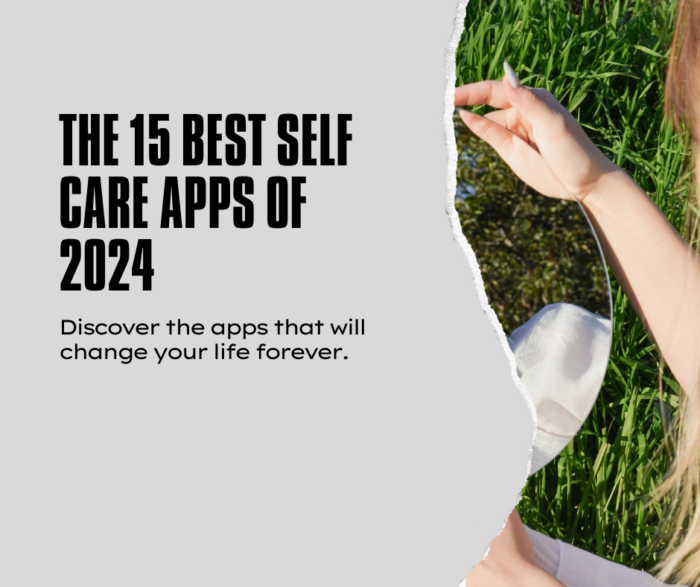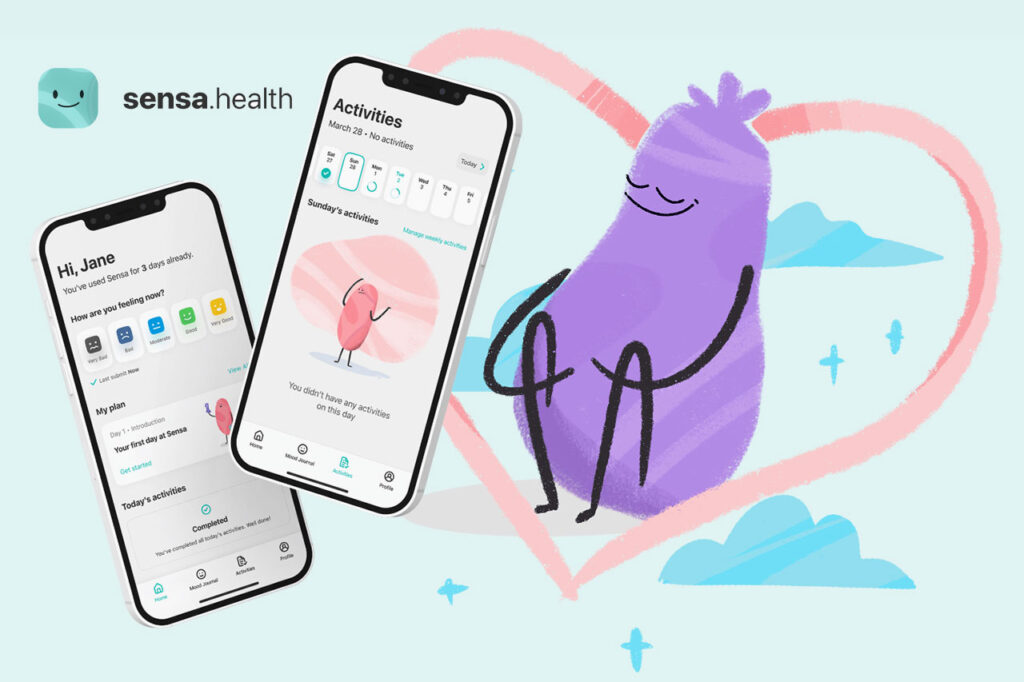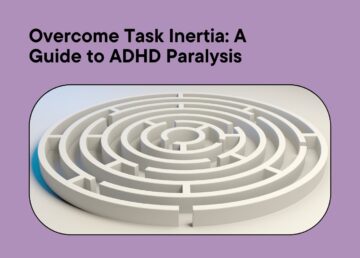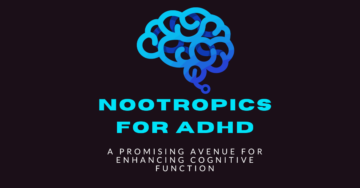
In the fast-paced world we are living in, it’s easy to get caught up in the hustle and bustle of daily life, leaving little time for ourselves and our well-being, leading to a deterioration of our mental health. Self-care has become a buzzword, but it’s more than just a trend; it’s an essential part of overall health and happiness. One of the easiest and most cost effective ways how to improve your mental health and develop healthy habits is by leveraging the support of technology in the form of self care apps. Self-care apps have emerged as a convenient and effective way to incorporate healthy practices into our lives, offering a plethora of tools and resources to promote physical, mental, and emotional well-being. These apps provide personalised guidance, mindfulness exercises, relaxation techniques, and habit trackers, empowering individuals to take control of their well-being and make positive changes in their lives. As the industry has grown rapidly over the last years, there is sure to be an app which can help with your mental health.

How Apps can help with Self Care and improve your quality of life?
Here are some specific ways usage of apps can promote self care:
- Apps can promote mindfulness and stress reduction through techniques such as guided meditations, breathing exercises, and mindfulness techniques
- They can enhance sleep quality through features such as sleep tracking, relaxation exercises, and personalised sleep plans
- Can be used to track and make positive changes to your habits – by gamifying habit formation, these apps can help to make it more enjoyable and engaging to adopt positive behaviors like regular exercise, healthy eating, and stress management techniques.
- These apps can connect you with support groups and communities.
- Usage of self care apps can also help with learning new skills and discovering new passions.
- Furthermore, many of the apps can ease the access to mental health resources, help you stay organised and build healthy relationships.

How to choose the right Self Care app for your needs?
Navigating the vast array of self-care apps can be overwhelming, but with careful consideration, you can find the right tools to support your individual needs and goals. Here’s a step-by-step guide to selecting the perfect self-care app:
1. Identify Your Goals – Start by defining your specific self-care goals. Are you seeking to manage stress, improve sleep quality, develop healthier habits, or connect with a support community?
2. Assess Your Preferences- Do you prefer guided meditations, mindfulness exercises, or creative outlets? Do you thrive on gamification or prefer minimal distractions?
3. Evaluate App Features- Do they provide the specific tools and resources you need to achieve your goals? Consider factors like habit tracking, sleep tracking, meditation options, access to support groups, or educational resources.
4. Review User Reviews- Read user reviews to gain insights into the app’s effectiveness, user-friendliness, and overall experience.
5. Consider Cost and Subscription Options- Evaluate the cost of premium plans and decide if the additional features justify the expense.
6. Start with a Few Apps- Don’t feel pressured to download and use every self-care app you encounter. Start with a few that align with your priorities and gradually incorporate them into your routine.
7. Experiment and Personalize- Try out different features and customization options to find what works best for you.
8. Seek Professional Guidance – If you have specific mental health concerns, consider seeking guidance from a licensed therapist or counselor.
15 Best Self Care Apps in 2024
Sensa

Sensa is a comprehensive self-care app that utilizes evidence-based CBT principles to guide users towards improved well-being.
Key Features:
- Personalized CBT Exercises: Tailored CBT exercises address individual needs and challenges, providing practical tools for self-improvement.
- Mood Tracking: Identifying mood fluctuations helps understand patterns and triggers, enabling personalized strategies for emotional regulation.
- Mindfulness Exercises: Guided meditations, breathing exercises, and grounding exercises promote relaxation, focus, and emotional well-being.
- Community Support: A supportive online forum fosters connection and encourages self-acceptance through shared experiences.
Pros:
- Evidence-Based Approach: CBT foundation aligns with proven effectiveness in managing symptoms.
- Personalized Guidance: Tailored exercises ensure a more effective and personalized experience.
- Mood Tracking and Mindfulness: Holistic approach combines mood tracking with mindfulness for emotional well-being.
- Community Support: Safe space for sharing experiences and seeking encouragement.
Cons:
- Subscription-Based: Full features require a subscription, potentially limiting accessibility.
- Text-Heavy Interface: Visual or auditory elements could enhance engagement.
Verdict:
Sensa stands out as a compelling self-care app, particularly for those seeking personalized guidance and holistic approaches to managing their well-being. Its evidence-based CBT foundation, tailored exercises, mood tracking, mindfulness practices, and supportive community forum make it a valuable resource for enhancing emotional regulation, stress management, and overall well-being.
Headspace

Headspace is a leading meditation app that offers a wide range of features to support users’ overall well-being. The app’s guided meditations, mindfulness exercises, and sleep-focused content cater to a diverse audience seeking to enhance their mental, physical, and emotional health.
Headspace: A Comprehensive Self-Care App
Headspace is a leading meditation app that offers a wide range of features to support users’ overall well-being. The app’s guided meditations, mindfulness exercises, and sleep-focused content cater to a diverse audience seeking to enhance their mental, physical, and emotional health.
Pros:
- Extensive Content Library: Wide range of guided meditations, mindfulness exercises, and sleep-focused content to address various needs and preferences.
- Evidence-Based Approach: Guided meditations and mindfulness techniques rooted in scientific research and proven effectiveness.
- Personalized Experience: Ability to tailor meditations and exercises based on individual preferences and goals.
- Mobile App Convenience: Access to guided meditations, mindfulness exercises, and sleep-focused content anytime, anywhere from a smartphone or tablet.
Cons:
- Subscription-Based: Full access to features requires a subscription, which may limit accessibility.
- Text-Heavy Interface: A more visual or auditory approach could enhance engagement and accessibility.
- Limited Sleep Tracking Capabilities: Sleep tracking features are relatively basic compared to dedicated sleep tracking apps.
Verdict:
Headspace emerges as a valuable self-care app, offering a comprehensive and evidence-based approach to enhancing well-being. Its extensive content library, personalized experience, and mobile app convenience make it an accessible and practical resource for individuals seeking to manage stress, improve sleep, and cultivate mindfulness. However, the subscription-based model and limited sleep tracking capabilities may deter some users.
Calm
Calm is an oasis of peace and tranquility amidst the chaotic modern world, offering a comprehensive self-care experience designed to nurture both mind and body. With its soothing guided meditations, calming sleep stories, and personalized mindfulness exercises, Calm provides a haven for those seeking to de-stress, improve sleep, and cultivate inner peace.
Pros:
- Calming Atmosphere: Calm’s soothing music, tranquil nature sounds, and calming voice narration create a serene atmosphere that promotes relaxation and stress reduction.
- Personalized Experience: Calm’s guided meditations and mindfulness exercises are tailored to individual preferences and needs, ensuring a more effective and enjoyable experience.
- Sleep Enhancement: Calm’s sleep stories, calming music, and sleep meditations are proven to promote restful sleep, helping users wake up feeling refreshed and rejuvenated.
- Stress Management: Calm’s guided meditations and mindfulness exercises effectively address stress and anxiety, providing tools for coping with life’s challenges.
Cons:
- Subscription-Based: Full access to Calm’s features requires a subscription, which may limit accessibility for some users.
- Limited Visual or Interactive Elements: While Calm’s audio content is exceptional, incorporating more visual or interactive elements could enhance engagement and accessibility.
- No Dedicated Sleep Tracking: Calm lacks a dedicated sleep tracking feature, which could be beneficial for those seeking comprehensive sleep improvement.
Verdict:
Calm is a haven of tranquility for individuals seeking to nurture their well-being. Its soothing atmosphere, personalized experiences, and effective stress management and sleep enhancement tools make it a valuable resource for anyone seeking a sanctuary of peace and relaxation. While subscription-based and lacking dedicated sleep tracking, Calm’s ability to calm the mind and promote inner peace remains unparalleled.
Insight Timer
Amidst the cacophony of modern life, Insight Timer stands as a sanctuary of serenity, offering a comprehensive and transformative self-care experience rooted in mindfulness and meditation practices. With its extensive content library, personalized features, and global community of practitioners, Insight Timer serves as a guiding light for those seeking inner peace, stress reduction, and holistic well-being.
Pros:
- Vast Content Library: Boasting over 10 million guided meditations and mindfulness exercises, Insight Timer caters to diverse needs and preferences.
- Personalized Experience: Tailor your practice with personalized playlists, themes, and guided meditations based on your goals and preferences.
- Global Community: Connect with a vibrant global community of practitioners, sharing experiences, offering support, and fostering a sense of belonging.
- Sleep Enhancement: Enhance your sleep with sleep meditations, relaxing music, and sleep stories, fostering restful and restorative sleep.
Cons:
- Text-Based Meditations: While effective, text-based meditations may not appeal to all users who prefer audio or visual guided meditations.
- Can Be Overwhelming: The vastness of the content library can be overwhelming for beginners, making it challenging to navigate and find specific sessions.
- Limited Gamification: While some features encourage engagement, Insight Timer lacks a fully gamified experience that could further motivate users.
Verdict:
Insight Timer is a treasure trove of mindfulness and meditation resources, offering a transformative experience for those seeking inner peace, stress reduction, and overall well-being. Its vast content library, personalized features, and global community make it a powerful tool for personal growth and self-discovery. While the text-based meditations and overwhelming content library may be drawbacks for some users, Insight Timer’s potential to enhance mindfulness and cultivate inner harmony remains undeniable.
Daylio

In the world of self-care apps, Daylio stands out as a unique and personalized tool for understanding and improving your well-being. This versatile app combines mood tracking, activity logging, and journaling into a comprehensive experience that empowers you to gain insights into your daily patterns and make informed decisions about your life.
Pros:
- Intuitive and User-Friendly Interface: Daylio’s simple and straightforward interface makes it easy to track your mood, activities, and thoughts, without compromising on personalization or functionality.
- Customizable Mood Tracking: Define your own mood categories to accurately reflect your unique experiences and emotions.
- Diverse Activity Tracking: Track a wide range of activities, from exercise and social engagements to personal achievements and health habits.
- Thought Journaling: Express your thoughts, reflections, and insights through a dedicated journaling feature.
- Visual Insights: Gain valuable insights into your day-to-day patterns and identify correlations between your mood, activities, and thoughts.
- Data Export: Export your data for further analysis in spreadsheet software or mental health apps
Cons:
- Limited Gamification: While there are some elements of gamification, Daylio lacks a fully gamified experience that could further motivate and engage users.
- Text-Based Journaling: While effective for some, text-based journaling may not appeal to all users who prefer visual or audio journaling options.
- No Integration with Other Health Apps: Daylio doesn’t integrate directly with other health apps or wearable devices for seamless data sharing.
Verdict:
Daylio is a valuable tool for self-reflection and personal growth, particularly for those seeking to understand their thoughts, behaviors, and emotions. Its intuitive interface, customizable features, and visual insights make it an engaging and insightful tool for self-discovery. While the limited gamification and text-based journaling may be drawbacks for some, Daylio’s potential to enhance self-awareness and promote personal growth remains significant.
eMoods
In the bustling world of self-care apps, eMoods stands out as a beacon of simplicity and effectiveness, providing a user-friendly platform for tracking moods, managing medications, and enhancing overall well-being.
Pros:
- Intuitive Interface: eMoods boasts a clean and uncluttered interface, making it easy to navigate and track your mood, medication intake, and other relevant information.
- Diverse Tracking Features: The app allows you to track your mood throughout the day, monitor sleep patterns, and record medication dosages, providing a comprehensive overview of your mental health and well-being.
- Visual Insights: eMoods generates detailed charts and graphs, allowing you to visualize trends and identify patterns in your mood fluctuations, sleep patterns, and medication adherence.
- Customizable Reminders: Set personalized reminders to ensure consistent tracking and prevent missed entries, promoting consistency in your self-care routine.
- Shareable Reports: Generate detailed reports to share with healthcare providers, enabling them to gain a deeper understanding of your mental health status and treatment progress.
Cons:
- Limited Gamification: While some elements of gamification are present, eMoods lacks a fully gamified experience that could further motivate and engage users.
- Limited Integration: The app doesn’t integrate directly with other health apps or wearable devices for seamless data sharing and synchronization.
- Unstructured Journaling: While journaling is encouraged, the app lacks a structured journaling feature that could provide more guidance and organization for self-reflection.
Verdict:
eMoods is a valuable self-care tool, particularly for those managing bipolar disorder or seeking to enhance their overall mental well-being. Its intuitive interface, diverse tracking features, and visual insights make it an accessible and practical resource for monitoring mood, managing medications, and gaining valuable insights into personal patterns and trends. While the limited gamification and unstructured journaling may be drawbacks for some users, the app’s potential to promote self-awareness and enhance overall well-being remains significant.
Fabulous
The Fabulous stands out as a transformative tool that empowers users to cultivate positive habits and achieve personal growth. This intuitive app harnesses the power of behavioral science and personalized guidance to help individuals embark on a journey of self-discovery and lasting change.
Pros:
- Data-Driven Insights: The app utilizes a data-driven approach, analyzing user behavior to provide personalized insights and recommendations that effectively reinforce habit formation.
- Behavioral Science Expertise: The Fabulous team comprises experts in behavioral science, ensuring that the app’s design and features align with proven principles of habit change.
- Diverse Habit Creation: Create personalized habit trackers to track a wide range of aspects, from exercise and nutrition to sleep and mindfulness practices.
- Motivational Guidance: Engage in daily challenges, step-by-step guided sessions, and motivational quotes to stay motivated and on track towards your self-improvement goals.
- Supportive Community: Connect with a supportive community of like-minded individuals to share experiences, exchange encouragement, and foster a sense of belonging on your self-improvement journey.
- Privacy-Focused Design: The app prioritizes user privacy, storing data securely and adhering to strict data protection measures.
Cons:
- Subscription-Based Model: Full access to the app’s features requires a subscription, which may limit accessibility for some users.
- Limited Gamification Elements: While the app incorporates some gamification elements, it lacks a fully gamified experience that could further enhance motivation and engagement.
- Inability to Directly Integrate with Health Apps: The app doesn’t integrate directly with other health apps or wearable devices for seamless data sharing and synchronization.
Verdict:
The Fabulous app emerges as a transformative tool for individuals seeking to cultivate positive habits, enhance their well-being, and achieve personal growth. Its data-driven approach, behavioral science expertise, diverse habit trackers, and supportive community make it an invaluable resource for promoting lasting change and achieving self-improvement goals. While the subscription-based model and limited gamification may be drawbacks for some users, the app’s potential to revolutionize habits and foster overall well-being remains significant.
Sleep Cycle
Sleep Cycle is an app that uses a combination of sound analysis and motion sensors to track your sleep patterns and provide you with personalized insights and recommendations to improve your sleep quality. The app also offers a variety of features to help you fall asleep and stay asleep, such as a wind down mode, a sleep sound library, and an alarm clock that wakes you up gently during your lightest sleep phase.
Pros
- Accurate Sleep Tracking: The app uses a combination of sound analysis and motion sensors to accurately track your sleep patterns, including sleep duration, sleep stages, and sleep efficiency.
- Personalized Insights: The app provides you with personalized insights and recommendations to improve your sleep quality, based on your sleep data and individual needs.
- Sleep Sound Library: The app offers a variety of sleep sounds to help you fall asleep and stay asleep, such as white noise, nature sounds, and calming music.
- Wind Down Mode: The app offers a wind down mode that can help you relax before bed and prepare for sleep.
- Gentle Alarm: The app’s gentle alarm wakes you up during your lightest sleep phase, which is said to be the most refreshing time to wake up.
Cons
- Limited Integration with Other Apps: The app does not directly integrate with other health apps or wearable devices, which could hinder data synchronization and seamless integration into existing routines.
- Limited Sleep Stage Accuracy: While the app’s sleep stage detection is generally accurate, it may not be as accurate for some users, as it relies on sound analysis and motion sensors.
- Can Be Overly Verbose: The app’s sleep data and recommendations can be overwhelming for some users, as the app provides a lot of information.
- May Not Be Suitable for All Users: The app is not suitable for all users, as it may not be effective for those with sleep disorders or those who need a more comprehensive sleep tracking solution.
Verdict:
Sleep Cycle is a comprehensive and effective app for tracking your sleep patterns and improving your sleep quality. The app’s personalized insights, sleep sound library, wind down mode, and gentle alarm are all valuable features that can help you achieve better sleep. However, the app’s limited integration with other apps, limited sleep stage accuracy, and verbose nature may make it unsuitable for some users.
HRV4Training
HRV4Training is a heart rate variability (HRV) app that uses your smartphone’s camera to measure your HRV. HRV is a measure of your heart’s ability to change its rhythm in response to stress or exertion. It can be used to assess your overall stress levels, recovery from exercise, and readiness for training.
Pros
- Accurate HRV Measurement: The app’s camera-based HRV measurement technology is scientifically validated and considered accurate for most users.
- Multiple HRV Calculations: The app provides multiple HRV calculations, including the standard deviation of time intervals (SDNN), the root mean square of successive differences (RMSSD), and the high-frequency (HF) power.
- Personalized Insights: The app provides personalized insights and recommendations based on your HRV data and individual needs.
- Training Recommendations: The app provides training recommendations based on your HRV data, helping you optimize your workouts and avoid overtraining.
- Rest and Recovery Guidance: The app provides guidance on rest and recovery based on your HRV data, helping you optimize your recovery and enhance performance.
Cons
- Camera-Based HRV Measurement: The app relies on camera-based HRV measurement, which may be less accurate than wearable devices for some users.
- HRV Measurement Can Be Inaccurate in Some Cases: HRV measurement can be inaccurate in some cases, such as if you have certain medical conditions or are using certain medications.
- May Not Be Suitable for All Users: The app may not be suitable for all users, as it requires a smartphone with a good camera.
Verdict:
HRV4Training is a comprehensive and effective app for measuring HRV and using it to assess your stress levels, recovery, and readiness for training. The app’s accuracy, numerous HRV calculations, personalized insights, training recommendations, rest and recovery guidance, stress management tools, and multiple device support make it a valuable tool for individuals seeking to optimize their training and overall well-being. However, the camera-based HRV measurement, potential inaccuracy in certain cases, limited suitability for some users, and lack of direct integration with other apps may make it less appealing for some individuals.
MoodTools
MoodTools is a collection of free, evidence-based tools and resources designed to help individuals manage and improve their mental health. The app provides a variety of features, including self-assessments, guided meditations, and daily check-ins to help users track their mood, identify patterns, and develop coping mechanisms.
Pros
- Free and Convenient: The app is completely free to use and accessible from anywhere with an internet connection.
- Science-Based: The app’s tools and resources are based on scientific research and evidence-based practices.
- Variety of Tools: The app offers a variety of tools and resources, including self-assessments, guided meditations, and daily check-ins.
- Track Your Progress: The app allows users to track their progress and identify patterns in their mood.
- Learn Coping Mechanisms: The app provides guided meditations and other mindfulness exercises to help users develop coping mechanisms for difficult emotions.
- Community Support: The app has a supportive community where users can connect with others and share their experiences.
- Multiple Languages: The app is available in multiple languages, making it accessible to a wider audience.
Cons
- Limited Personalization: The app’s tools and resources are not personalized to individual needs and preferences.
- Limited Integration with Other Apps: The app does not directly integrate with other health apps or wearable devices, which could hinder data synchronization and seamless integration into existing routines.
- Visuals and Design Could Be Improved: The app’s visuals and design could be improved to make it more user-friendly and engaging.
Verdict:
MoodTools is a valuable resource for individuals seeking to manage and improve their mental health. The app’s free and convenient nature, science-based approach, variety of tools, and ability to track progress make it a great choice for individuals of all ages and backgrounds. However, the limited personalization, lack of integration with other apps, and need for improvement in visuals and design may limit its appeal for some users.
Mindfulness Bell
Mindfulness Bell is a simple yet powerful tool for cultivating mindfulness and focus. The app provides a customizable timer that can be used to set reminders to take breaks, meditate, or simply be present in the moment.
Pros
- Simple and Easy to Use: The app is incredibly simple and easy to use, making it accessible to users of all levels of experience.
- Customizable Timers: Users can create customizable timers for different activities, such as taking breaks, meditating, or practicing mindfulness.
- Visual and Audio Cues: The app provides visual and audio cues to help users focus and stay present.
- No Distractions: The app is designed to minimize distractions, making it ideal for focusing on tasks that require concentration.
- Free and Open Source: The app is completely free and open-source, making it accessible to everyone.
Cons
- Limited Features: The app lacks some of the advanced features found in other mindfulness apps, such as guided meditations or progress tracking.
- Not Personalized: The app lacks personalization, so users cannot tailor the experience to their specific needs or preferences.
- Limited Integration: The app does not directly integrate with other health apps or wearable devices, which could hinder data synchronization and seamless integration into existing routines.
- No Community Support: The app does not have a built-in community or support system, making it difficult for users to connect with others and share their experiences.
Verdict:
Mindfulness Bell is a great option for those seeking a simple and easy-to-use tool for cultivating mindfulness. The app’s customizable timers, visual and audio cues, and focus on reducing distractions make it a valuable resource for individuals seeking to enhance their well-being. However, its limited features, lack of personalization, integration, and community support may make it less suitable for those seeking a more comprehensive mindfulness experience.
Colorfy
Colorfy is a fun and relaxing coloring book app that offers a vast library of high-quality coloring pages, including mandalas, animals, landscapes, and more. The app provides a variety of features to enhance the coloring experience, such as color palettes, blending tools, and a gallery to share your creations.
Pros
- Vast Library of Coloring Pages: Colorfy offers a vast library of high-quality coloring pages, with more being added regularly.
- High-Quality Images: The coloring pages in Colorfy are high-quality images that are perfect for colorists of all skill levels.
- Variety of Coloring Tools: Colorfy provides a variety of coloring tools, including color palettes, blending tools, and undo/redo buttons.
- Gorgeous Backgrounds: Colorfy offers a variety of gorgeous backgrounds to enhance your coloring experience.
Cons
- Subscription-Based Model: The app requires a subscription to unlock all features and unlimited access to coloring pages.
- Limited Color Palettes: The app provides a limited selection of color palettes, which may not be enough for some users.
- No Offline Access: The app requires an internet connection to access coloring pages, which can be inconvenient for users who travel or have limited internet access.
- No Community Support: The app does not have a built-in community or support system, which makes it difficult for users to connect with others and share their experiences.
Verdict:
Colorfy is a great option for those seeking a fun and relaxing coloring book app with a vast library of high-quality coloring pages. The app’s variety of coloring tools, gorgeous backgrounds, and ability to save and share creations make it a compelling choice for colorists of all skill levels. However, its subscription-based model, limited color palettes, and lack of offline access and community support may make it less appealing for some users.
Relax Melodies

Relax Melodies Sleep Sounds is an app that provides a variety of relaxing sounds, including white noise, nature sounds, and binaural beats. The app is designed to help users fall asleep, relax, and focus.
Pros
- Variety of Sounds: The app offers a wide variety of relaxing sounds, including white noise, nature sounds, and binaural beats.
- Customizable Soundscapes: Users can create custom soundscapes by combining different sounds.
- Timers: The app provides timers to help users fall asleep or focus.
- Visualizer: The app provides a visualizer that shows the sound waves of the selected sounds.
- Cross-Platform Compatibility: The app is available on both iOS and Android, making it compatible with a wide range of devices.
- Freemium Model: The app is free to download and use with limited features, but for full access to all features, users need to purchase a premium subscription.
Cons
- Limited Customization: The app’s customization options are limited compared to some other sleep sound apps.
- Some Sounds May Cause Distraction: Some users may find some of the sounds to be too distracting.
- Not Personalized: The app is not personalized to individual needs or preferences.
- No Integration with Other Apps: The app does not directly integrate with other health apps or wearable devices, which could hinder data synchronization and seamless integration into existing routines.
- No Community Support: The app does not have a built-in community or support system, making it difficult for users to connect with others and share their experiences.
Verdict:
Relax Melodies Sleep Sounds is a good option for those seeking a variety of relaxing sounds to help them fall asleep or focus. The app’s abundance of sounds, customizable soundscapes, and timers make it a versatile tool for relaxation. However, its limited customization options, potential distraction for some users, lack of personalization, integration, and community support may make it less appealing for some individuals.
Happify
Happify is a personal growth and habit-forming app that uses behavioral science principles to help users achieve their goals. The app provides a variety of features, including habit tracking, daily challenges, guided meditations, and a supportive community.
Pros
- Data-Driven Approach: Happify utilizes behavioral science research to tailor its personalized recommendations to each user’s unique needs and motivations.
- Diverse Habit Trackers: Happify offers a wide range of habit trackers to monitor different aspects of users’ lives, including exercise, nutrition, sleep, and mindfulness.
- Motivational Guidance: The app provides daily challenges, step-by-step guided sessions, and inspirational quotes to keep users on track and motivated.
- Supportive Community: Happify fosters a vibrant community of like-minded individuals, allowing users to exchange experiences, find encouragement, and build a sense of belonging.
- Privacy-Focused Design: The app prioritizes data security and adheres to strict protection guidelines, ensuring user privacy is safeguarded throughout the journey of personal growth.
Cons
- Subscription-Based Model: Full access to Happify’s features requires a premium subscription, which may be a deterrent for some users who prefer a more flexible pricing structure.
- Limited Gamification: While some gamification elements are present, the overall experience could benefit from a more gamified approach to further enhance motivation and engagement.
- Limited Integration with Other Apps: Happify does not directly integrate with other health apps or wearable devices, which could hinder data synchronization and seamless integration into existing routines.
Verdict:
Happify is a comprehensive and effective app for cultivating positive habits and enhancing well-being. Its personalized approach, diverse habit trackers, supportive community, and focus on data-driven insights make it a valuable resource for individuals seeking transformative change. However, the subscription-based model, limited gamification, and lack of direct integration with other apps may make it less suitable for some users.
Sanvello
Sanvello is a mental health app that provides therapy, coaching, and meditation to help individuals manage stress, anxiety, and depression. The app offers a variety of features, including personalized treatment plans, live video therapy sessions, and a supportive community.
Pros
- Convenient and Affordable: Sanvello is accessible from anywhere with an internet connection, making it convenient for users to access mental health support.
- Personalized Treatment Plans: Sanvello’s therapy and coaching programs are tailored to each user’s individual needs and goals.
- Live Video Therapy: Sanvello offers live video therapy sessions with licensed therapists, providing a more immersive and personalized experience.
- Supportive Community: Sanvello fosters a supportive community of like-minded individuals, allowing users to connect with others, share experiences, and find encouragement.
- Privacy-Focused Design: Sanvello prioritizes data security and adheres to strict protection guidelines, ensuring user privacy is safeguarded throughout the therapy process.
Cons
- Subscription-Based Model: Full access to Sanvello’s features requires a premium subscription, which may be a deterrent for some users who prefer a more flexible pricing structure.
- Limited Gamification: While the app incorporates some gamification elements, the overall experience could benefit from a more gamified approach to further enhance engagement and motivation.
Verdict:
Sanvello is a comprehensive and effective app for managing stress, anxiety, and depression. Its personalized treatment plans, live video therapy sessions, supportive community, and focus on data-driven insights make it a valuable resource for individuals seeking mental health support. However, the subscription-based model, limited gamification, and lack of direct integration with other apps may make it less suitable for some users.
Conclusion
In today’s fast-paced world, it’s more important than ever to prioritize self-care. With the help of technology, we now have a plethora of apps at our fingertips that can help us achieve our health and wellness goals. Whether you’re looking to improve your sleep, reduce stress, or manage your mental health, there’s an app out there for you.
When choosing the right self-care app for you, it’s important to consider your individual needs and preferences. Ask yourself what specific areas of your life you want to improve, and what type of support you’re looking for. Do you need personalized guidance, a supportive community, or gamified features to stay motivated?
Once you’ve narrowed down your options, take advantage of free trials or freemium models to try out different apps before committing to a subscription. It’s also important to read reviews and user feedback to get an idea of the app’s effectiveness and user experience.
Remember, self-care is an ongoing journey, not a destination. There will be ups and downs along the way, but with the right tools and support, you can achieve your goals and live a happier, healthier life.
Frequently Asked Questions
What are the different types of self-care apps?
There are a variety of different types of self-care apps available, including:
- Stress management apps: These apps offer tools and techniques to help you manage stress, such as mindfulness exercises, meditation, and breathing exercises.
- Anxiety management apps: These apps provide tools and resources to help you manage anxiety, such as relaxation techniques, cognitive-behavioral therapy (CBT) exercises, and support groups.
- Sleep apps: These apps help you improve your sleep quality by providing tips, techniques, and sleep tracking tools.
- Nutrition apps: These apps help you manage your diet by providing meal plans, recipes, and calorie tracking tools.
- Exercise apps: These apps help you stay active by providing workout routines, fitness tracking tools, and motivational support.
- Mental health apps: These apps provide mental health support by offering therapy, coaching, and meditation tools.
What is the best self-care app?
- Sensa: Sensa is a unique self-care app that utilizes a wearable device to track your biological signals, including skin conductance, heart rate variability, and breathing rate. It then analyzes this data to provide personalized insights and recommendations to help you identify patterns in your mood and habits, and make informed decisions to improve your overall well-being.
- Happify: Happify stands out for its approach to personalizing self-care using data-driven insights. It employs behavioral science principles to tailor its recommendations to each user’s unique needs and motivations, motivating them to form positive habits and achieve their well-being goals.
- MoodTools: MoodTools is a comprehensive self-care app that addresses the full spectrum of mental health issues. It provides self-assessments, guided meditations, and daily check-ins to help users manage their mood, identify potential stressors, and develop coping mechanisms to enhance their emotional well-being.
- Mindfulness Bell: For those seeking a simple yet effective tool to enhance mindfulness, Mindfulness Bell offers a straightforward approach. It provides customizable timers to help users practice relaxation techniques, take breaks from activities, or simply focus on the present moment, fostering a sense of calm and clarity.
While these four apps offer distinct features and benefits, they all share a common goal: to empower individuals to take charge of their well-being and cultivate a healthier lifestyle. The best app for you will depend on your individual needs, preferences, and the specific aspects of self-care you seek to address.
Is there an app that reminds you to take care of yourself?
Yes, there are several apps that can help you remember to take care of yourself. These apps can remind you to do things like:
- Practice mindfulness: Apps like Mindfulness Bell and Headspace can send you reminders to meditate, take deep breaths, or simply focus on the present moment.
- Get enough sleep: Apps like Sleep Cycle and SleepScore can track your sleep patterns and send you reminders to go to bed and wake up at healthy times.
- Eat healthy: Apps like MyFitnessPal and LoseIt! can help you track your food intake and make healthy eating choices.
- Get exercise: Apps like Strava and Nike Run Club can help you stay motivated to exercise by tracking your workouts and connecting with other fitness enthusiasts.
- Socialize: Apps like Meetup and Bumble BFF can help you connect with new people and build a strong social support network
What is the app that increases self awareness?
There are several apps that can help you increase self-awareness, but some of the most popular include:
- Youper: This app uses a chatbot to engage you in conversations about your thoughts, feelings, and behaviors.
- Reflectly: This app uses prompts and questions to help you reflect on your life and identify patterns in your thoughts and behaviors.
- Sanvello: This app includes a self-assessment tool that can help you identify your strengths and weaknesses in terms of self-awareness.
- Mindful Self-Compassion: This app provides guided meditations and exercises that can help you develop self-compassion, a key factor in self-awareness.
- Inner Explorer: This app uses a variety of techniques, including meditation, journaling, and visualization, to help you explore your inner world and increase your self-awareness.





